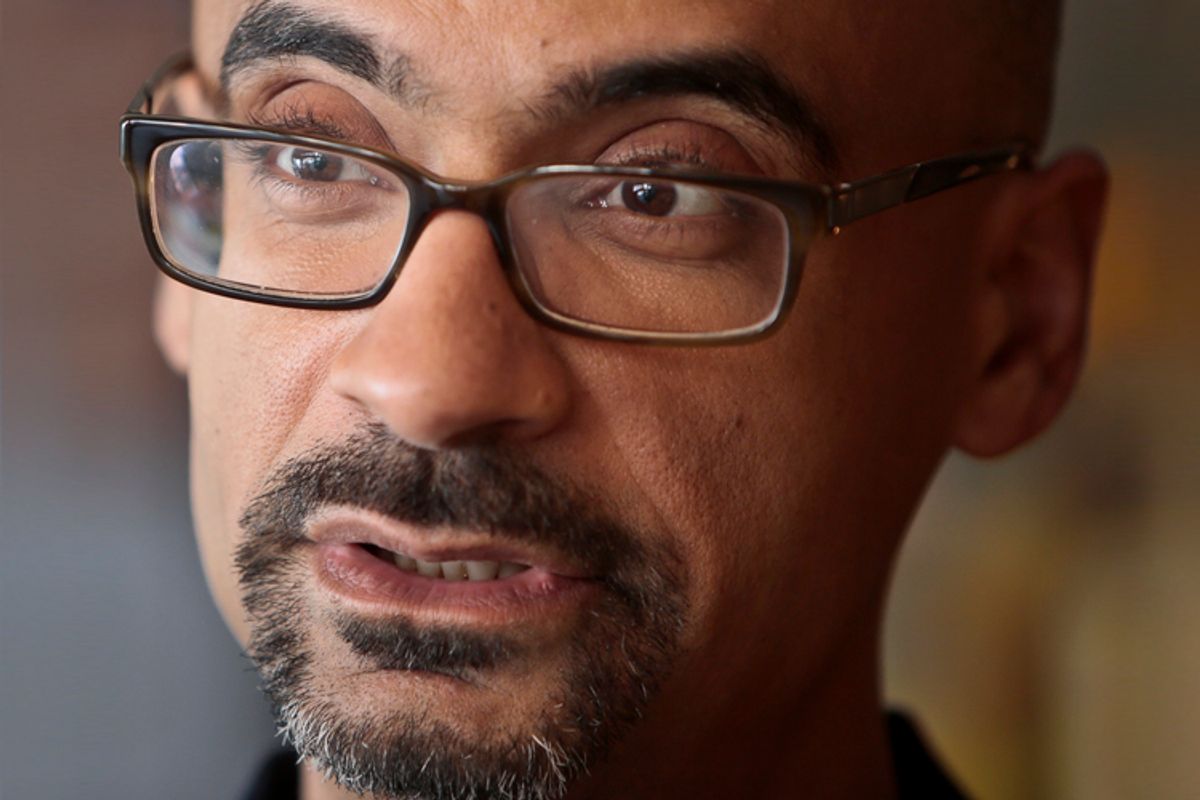On the same week that activists called for more diversity in fiction, the New Yorker published a compelling essay by Pulitzer Prize-winning author and MIT professor Junot Díaz, in which Díaz criticized MFA programs for their overwhelming whiteness. "Lately I’ve been reading about MFA vs NYC," Díaz wrote about the ongoing debate within the ivory tower. "But for many of us it’s MFA vs POC." Díaz recalled how his MFA experience at Cornell failed him, how he almost dropped out, and how many of MFA students do, in fact, give up because they feel like there's no room to talk about their specific experiences in the insular literary community: about coloniality, about gender, about race.
Díaz explained in his essay: "From what I saw the plurality of students and faculty had been educated exclusively in the tradition of writers like William Gaddis, Francine Prose, or Alice Munro—and not at all in the traditions of Toni Morrison, Cherrie Moraga, Maxine Hong-Kingston, Arundhati Roy, Edwidge Danticat, Alice Walker, or Jamaica Kincaid. In my workshop the default subject position of reading and writing—of Literature with a capital L—was white, straight and male."
And so, in search of an alternate canon, we hunted down some syllabi from the classes Díaz teaches at MIT. (Granted, they are undergrad, not MFA classes, but still.) He teaches two courses within MIT's Comparative Media Studies/Writing Department, one on fantasy "world-building" and one section of advanced fiction. They both seem too good to be true.
Díaz, informed that Salon had tracked down his syllabi, assured us via email that the diversity of perspectives he emphasizes is less about the books than the approach. "I teach classic Gothic texts which are themselves not very diverse by our standards," he said, "but the critical lens I deploy helps my students understand how issues of race, gender, coloniality etc. are never far and how these problematics in fact underpin even what what would be considered a ‘white text.’"
Sharing just a list of books, he feared, "feels like a shortcut—like throwing out Sterling from the NBA."
But he agreed that one has to start somewhere. So behold, greatness:
World-Building:
Description: "This class concerns the design and analysis of imaginary (or constructed) worlds for narrative media such as roleplaying games, films, comics, videogames and literary texts. ... The class’ primary goal is to help participants create better imaginary worlds – ultimately all our efforts should serve that higher purpose."
Prerequisites: "You will need to have seen Star Wars (episode four: A New Hope) and read The Lord of the Rings by JRR Tolkien."
Reading List:
"A Princess of Mars" by ER Burroughs
"Dracula" by Bram Stoker
"Batman: The Dark Knight Returns" by Frank Miller
"Sunshine" by Robin McKinley
"V for Vendetta" by Alan Moore
"The Hunger Games" by Suzanne Collins
"The Hundred Thousand Kingdoms" by NK Jemisin
"Lilith’s Brood" by Octavia Butler
"Perdido Street Station" by China Miéville
"Snow Crash" by Neal Stephenson (Recommended)Some things to consider always when taking on a new world: What are its primary features—spatial, cultural, biological, fantastic, cosmological? What is the world’s ethos (the guiding beliefs or ideals that characterize the world)? What are the precise strategies that are used by its creator to convey the world to us and us to the world? How are our characters connected to the world? And how are we the viewer or reader or player connected to the world?
Advanced Fiction
Description: "An advanced workshop on the writing and critiquing of prose."
Reading List:
"Clara" by Roberto Bolaño
"Hitting Budapest" by NoViolet Bulawayo
"Whites" by Julie Otsuka
"Ghosts" by Edwidge Danticat
"My Good Man" by Eric Gansworth
"Gold Boy, Emerald Girl" by Yiyun Li
"Bounty" by George Saunders
No sign of Alice Munro or Francine Prose here. As Díaz told Salon: "If race or gender (or any other important social force) are not part of your interpretive logic—if they're not part of what you consider the real—then you're leaving out most of what has made our world our world. This is a long way of saying that it's not the books you teach, but how you teach them."



Shares